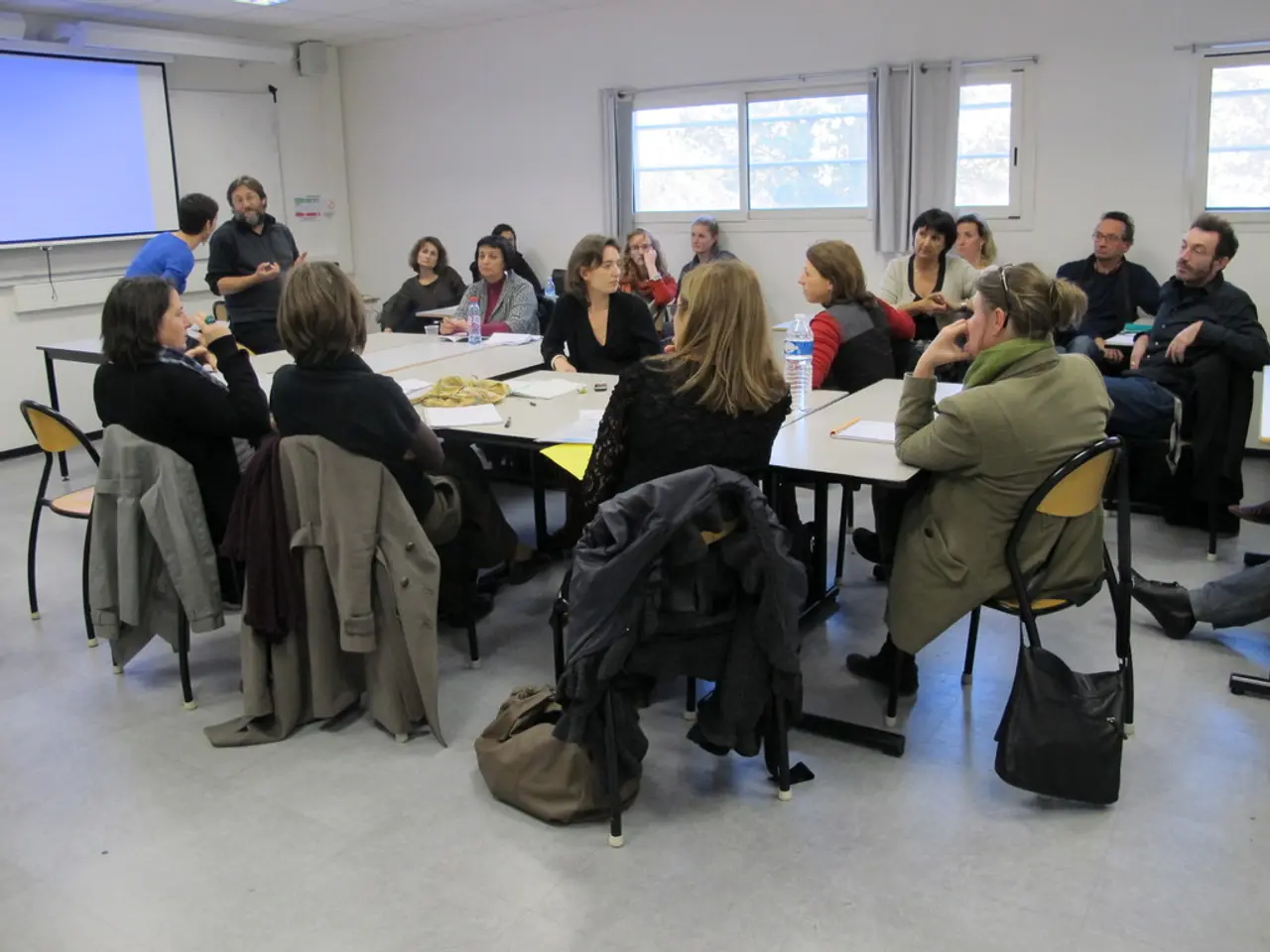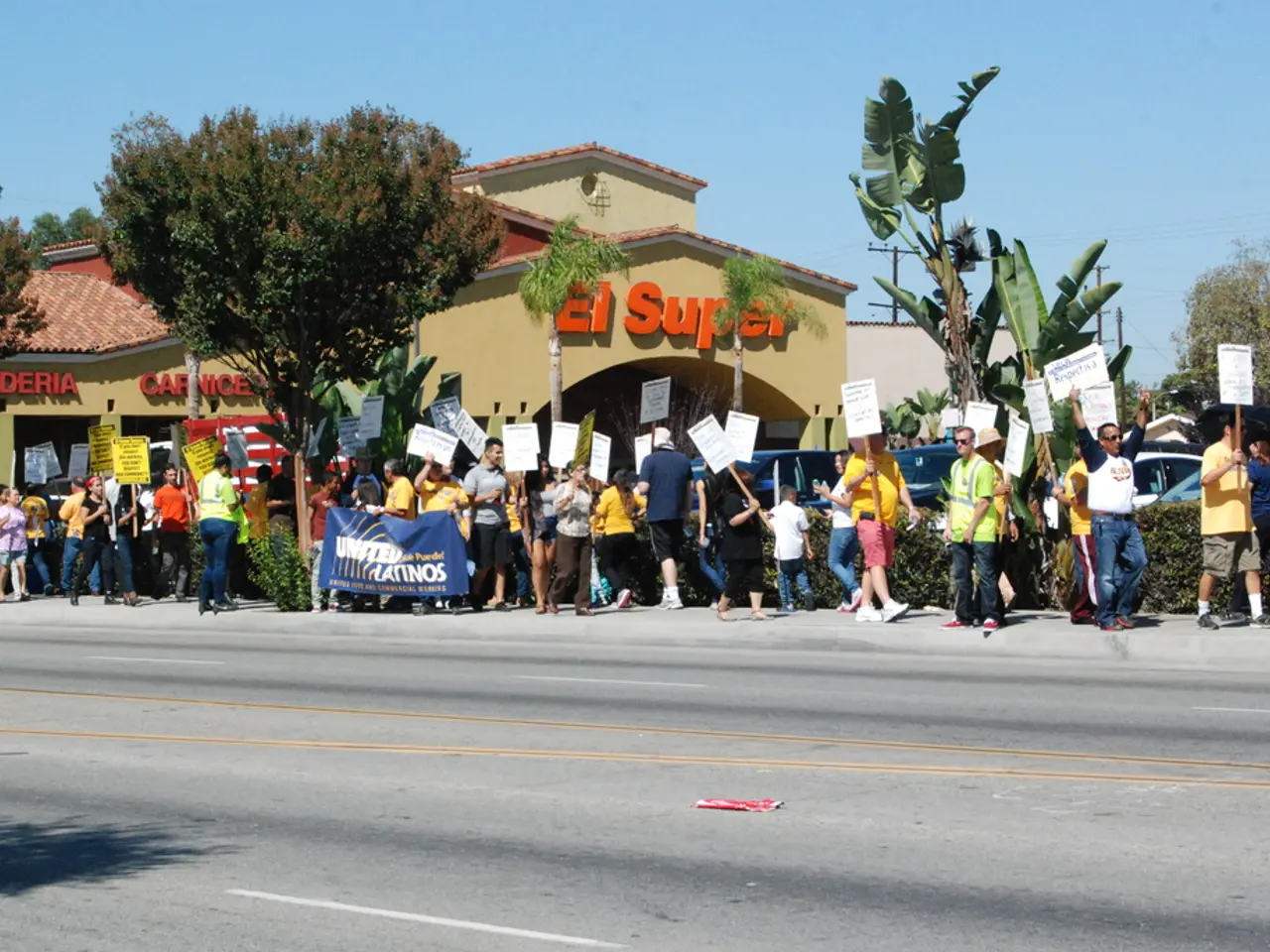"Talks with us, not Europe" - Trump downplays European efforts in Iran conflict
Europe lacks the ability to contribute significantly to the Iran conflict, according to Trump's statement.
In the heated conflict between Israel and Iran, U.S. President Donald Trump expresses no use for European states' diplomatic attempts to mediate. "Iran isn't seeking dialogue with Europe. They want to chat with us. Europe can't make a difference," Trump states when questioned about the recent European conversations with Tehran. While there are ongoing discussions between the U.S. and Iran, Trump alludes to future developments without providing further details. Media reports point to U.S. Special Representative Steve Witkoff engaging in contact with Tehran.
German Foreign Minister Johann Wadephul, along with his French, British, and EU counterparts, and EU foreign policy chief Kaja Kallas, convened with Iranian chief diplomat Abbas Araghtschi in Geneva last Friday. Their aim was to re-establish negotiations, focusing on Iran's nuclear program, just a week after the escalation of the Israel-Iran war. After the meeting, CDU politician Wadephul remarked, "We left the room with the impression that the Iranian side is open to continued dialogue regarding crucial matters."
Speculations of diplomatic decoy
Trump offered no praise for this diplomatic endeavor. When queried about Tehran's demand for a ceasefire prior to negotiations, Trump responded that it's challenging to impose such demands upon Israel. He described Israel as the current victor in the war against Iran, and a ceasefire request would be simpler if one side didn't hold the upper hand. Trump had previously indicated that he would make a decision on U.S. military intervention within the conflict within two weeks. Now he states that two weeks is the maximum time frame.
Iran's Foreign Minister Araghtschi raises suspicions about the announced two-week deadline for diplomatic efforts. In an interview with U.S. broadcaster NBC News, he suspects that the two-week deadline could be a ploy. The U.S. needs to demonstrate the desire for a negotiated solution, "or they've got something else in mind, and they want to strike Iran anyway," Araghtschi alleged. "Maybe they devised this strategy and utilized negotiations merely to disguise it." Iran, according to Araghtschi, can no longer trust the U.S.
Trump was also questioned about the analysis of U.S. intelligence agencies that Iran is not currently building a nuclear bomb. "If that's what my intelligence agencies say, then they're off the mark," Trump replied. If U.S. intelligence coordinator Tulsi Gabbard declared that, then she's mistaken, Trump added emphatically. Gabbard made this statement in Congress in March. Iran continues to assert that its nuclear program is solely for peaceful purposes.
[1] While search results did not provide direct evidence confirming or denying Iran's Foreign Minister Araghtschi's suspicion that the two-week deadline for diplomatic efforts is a ruse, they did report Trump's deadline for a decision on U.S. military intervention in the Iran conflict, but providing no insight into Araghtschi's interpretation or any analyses supporting this claim.
In this ongoing Middle Eastern conflict, Trump's statements suggest a distrust towards European efforts in resolving the Iran-Israel war, stating, "Iran isn't seeking dialogue with Europe." However, speculations rise about a potential diplomatic deception, as Iran's Foreign Minister Araghtschi suspects that the two-week deadline for diplomatic efforts could be a ruse, intended to mask a potential military intervention. This suspicion, however, remains unverified by available information. In light of this, the community policy surrounding this situation, including the ongoing economic and monetary union and monetary union discussions, remains to be seen.







